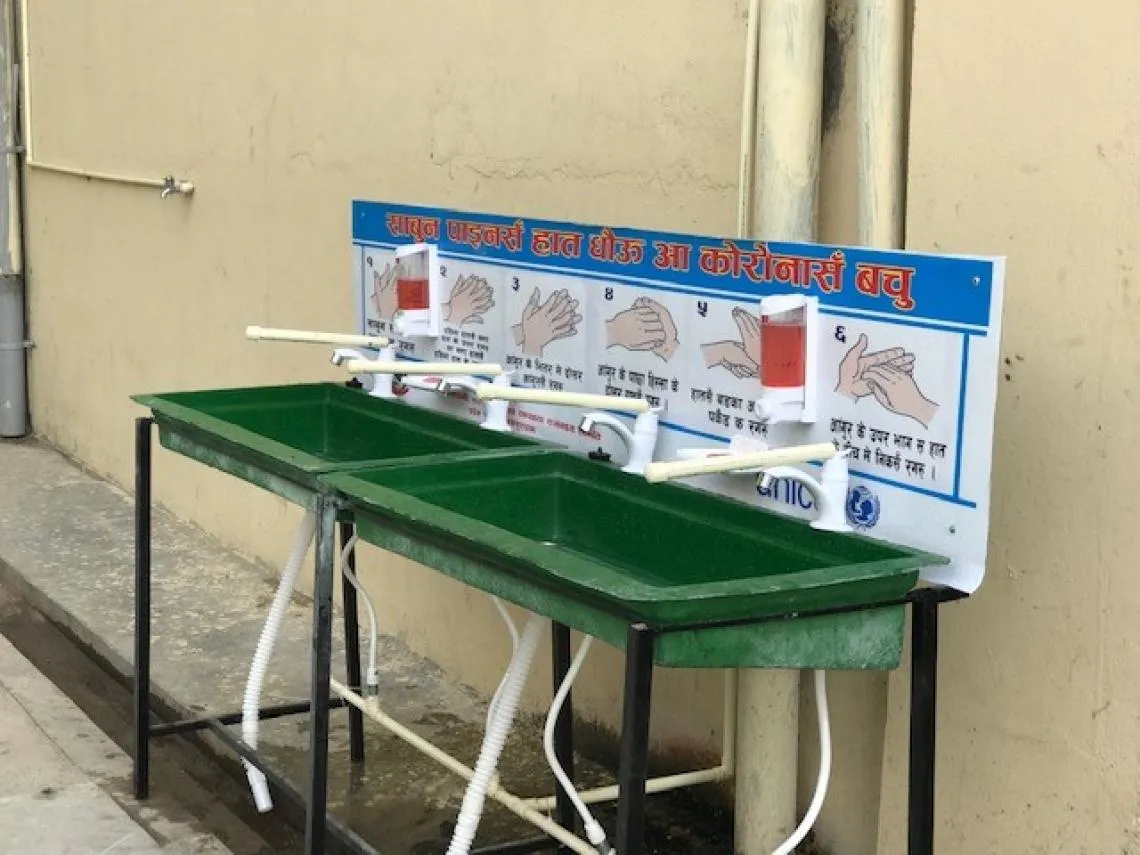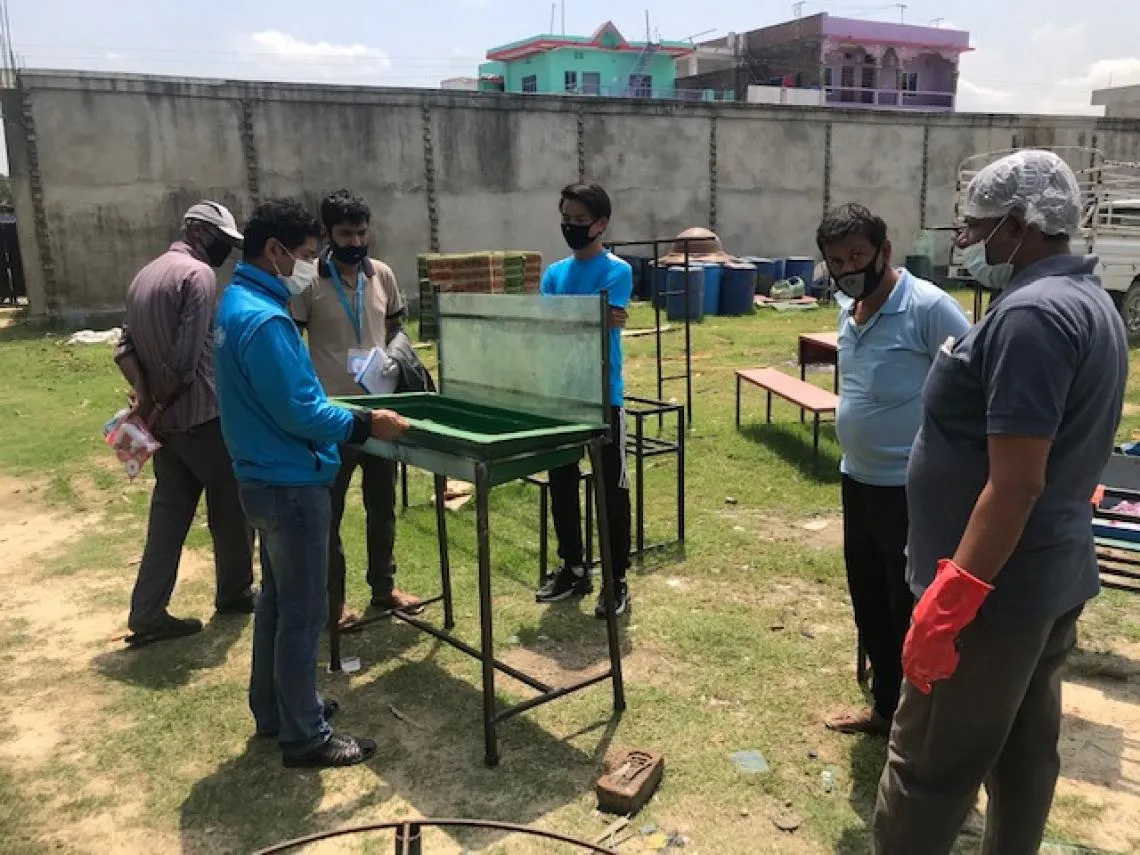Hands-On Innovation
Recognizing the critical role that handwashing with soap plays in the fight against COVID-19 – and the reality that many places around the country still don’t have access to this most basic of public health interventions – UNICEF has landed on an innovative solution to meet the challenge, in the form of prefabricated handwashing stations.
The designs come in two- and four-tap variations, all elbow-operated systems, and can be easily installed in a few hours’ time, compared to the several days – and more human resources – it would otherwise take to build regular handwashing facilities on the spot.

The shortened time is largely because the structures are pre-assembled in the factory and therefore need only to be connected to existing water supply and drainage to come into use.
Other models have been developed, including one with its own water-storage capacity, ideal for use in schools, health care facilities, bus parks, and other crowded public places such as markets and highway junctions, whether water connections are not available or far away.
Made primarily of fiber and iron painted with enamel, these handwashing stations are also low-cost, easy to transport, and durable, according to UNICEF water, sanitation and hygiene (WASH) officer Bodh Narayan Shrestha.

“Given the challenges of mobilizing both human and material resources in this particular crisis, there was a demand for innovation,” says Narayan Shrestha. “We needed something that would be quick and easy to produce, install and use.” There is still room to improve though and UNICEF will continue to polish and rework the product in the coming days.
The very first elbow-based station was recently established on the premises the Janakpur Provincial Hospital in Dhanusha District in southern Nepal, and is being regularly used by both staff and service-seekers.
Users are also being cautioned to maintain distance between one another while using the taps, as part of the hospital’s infection prevention and control measures.
Over the next few weeks, UNICEF will be setting up over 20 similar stations in 12 other health care facilities, with the focus on COVID-19 treatment and isolation centers.
